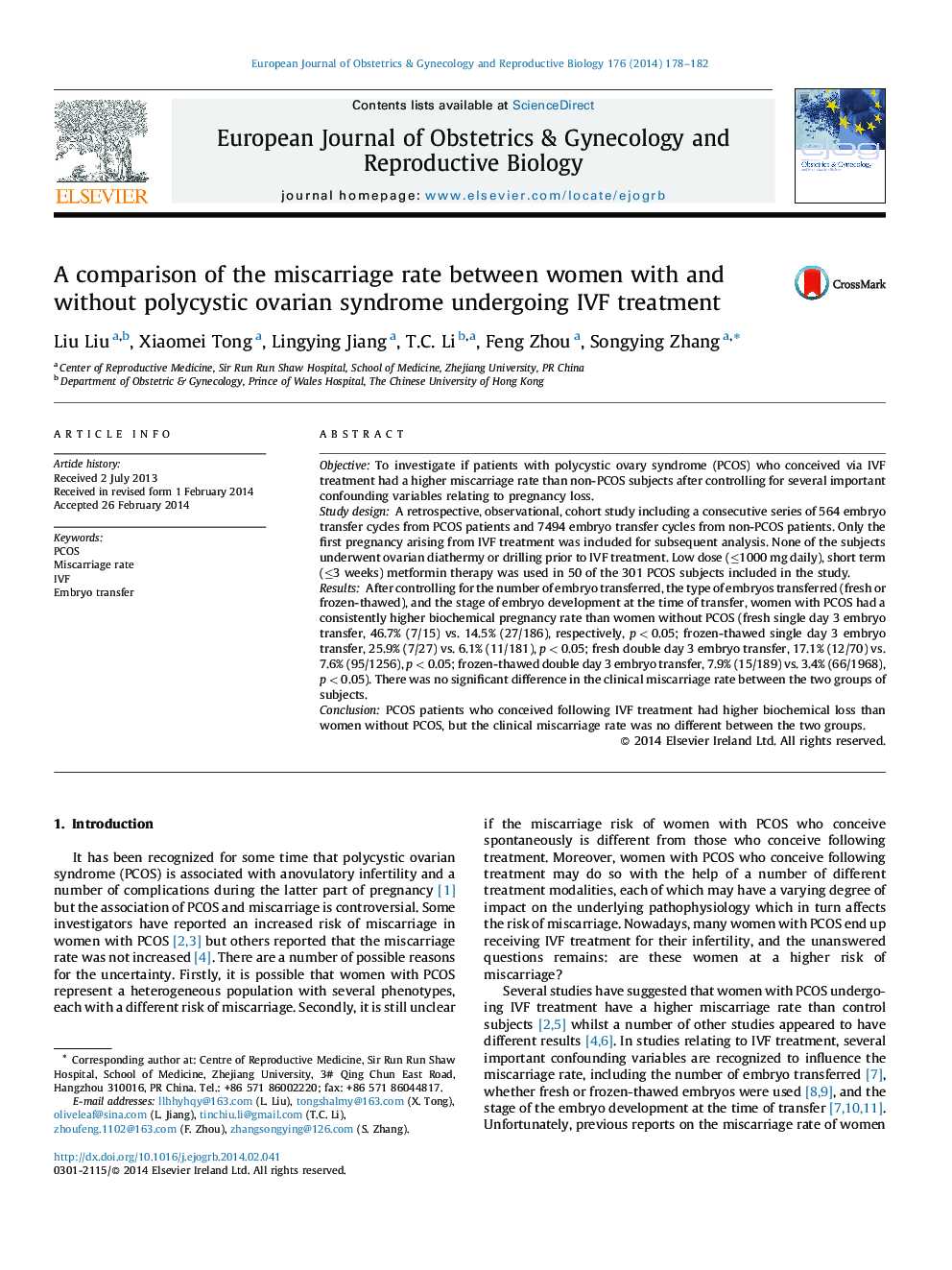| Article ID | Journal | Published Year | Pages | File Type |
|---|---|---|---|---|
| 3920088 | European Journal of Obstetrics & Gynecology and Reproductive Biology | 2014 | 5 Pages |
ObjectiveTo investigate if patients with polycystic ovary syndrome (PCOS) who conceived via IVF treatment had a higher miscarriage rate than non-PCOS subjects after controlling for several important confounding variables relating to pregnancy loss.Study designA retrospective, observational, cohort study including a consecutive series of 564 embryo transfer cycles from PCOS patients and 7494 embryo transfer cycles from non-PCOS patients. Only the first pregnancy arising from IVF treatment was included for subsequent analysis. None of the subjects underwent ovarian diathermy or drilling prior to IVF treatment. Low dose (≤1000 mg daily), short term (≤3 weeks) metformin therapy was used in 50 of the 301 PCOS subjects included in the study.ResultsAfter controlling for the number of embryo transferred, the type of embryos transferred (fresh or frozen-thawed), and the stage of embryo development at the time of transfer, women with PCOS had a consistently higher biochemical pregnancy rate than women without PCOS (fresh single day 3 embryo transfer, 46.7% (7/15) vs. 14.5% (27/186), respectively, p < 0.05; frozen-thawed single day 3 embryo transfer, 25.9% (7/27) vs. 6.1% (11/181), p < 0.05; fresh double day 3 embryo transfer, 17.1% (12/70) vs. 7.6% (95/1256), p < 0.05; frozen-thawed double day 3 embryo transfer, 7.9% (15/189) vs. 3.4% (66/1968), p < 0.05). There was no significant difference in the clinical miscarriage rate between the two groups of subjects.ConclusionPCOS patients who conceived following IVF treatment had higher biochemical loss than women without PCOS, but the clinical miscarriage rate was no different between the two groups.
